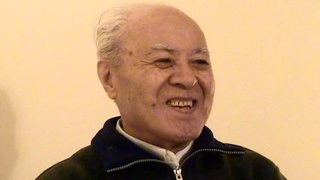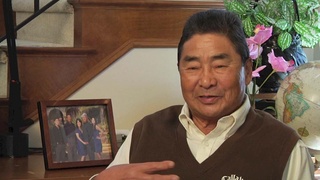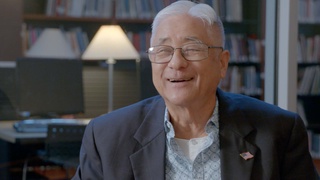Interviews
Her mother came to the U.S. with a group of picture brides
I remember her telling us a story about how she was on this ship – a whole group of picture brides, women who were coming – and she said, “I remember thinking that these people were coming to marry guys that they had never even met,” and of course my mother didn’t know her husband that well either, because she had just married, and he left in a matter of weeks.
And so she said – but she felt kind of superior to them, because she would have already have been married, and knew her husband, so she said, “I remember that these women had these picture, you know, of their – their prospective husbands, and they were trying to match their faces” – they didn’t – and she thought that was quite extraordinary a process. They never – and they – and she used to tell us a story of how she came to this country.
Date: August 7, 2018
Location: California, US
Interviewer: Sharon Yamato
Contributed by: Watase Media Arts Center, Japanese American National Museum
Explore More Videos

Tango makes him to stay in Argentina (Spanish)
(1925-2014) La Plata Hochi, Journalist



Government urged Japanese Canadians to go to Japan
(b. 1928) Doctor. Former Chair of the Japanese Canadian Redress Foundation.

Never married
(1913-2013) Doctor specializing in obstetrics in Southern California


On returning to post-war Peru (Japanese)
(b. 1948) Executive Director of Amano Museum





Facing discrimination in America (Japanese)
(b. 1936) Shin-issei welding business owner



My daughter couldn’t fit in Japan, so I decided to go back to America (Japanese)
(b. 1936) Shin-issei welding business owner
